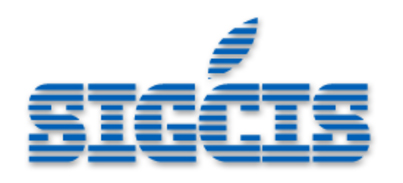

STORED IN MEMORY
The 10th Annual SIGCIS Conference St. Louis, Missouri, USA | October 14, 2018
The Special Interest Group in Computing, Information, and Society [SIGCIS]
welcomes submissions to their annual conference
Proposal Due Date: June 30, 2018
KEYNOTE SPEAKER
Eden Medina
Associate Professor of Informatics and Computing at Indiana University Bloomington
THEME
Much of a computer’s work is made possible not by users’ direct actions, but by off -screen manipulations of its memory: storage, allocation, saving, deletion, registration, collection,partitioning, defragmentation, and so on. These processes have been crucial to the computer’s mass popularization during the 20th century and into the 21st—from the first stored program computer,to the rise of the consumer software industry, to the unpredictable and often troubling emergence of
the Internet of Things, predictive analytics, and data harvesting.
Yet encoding in computer memory is never obvious, given, or inert; choices about how to store and structure data inevitably inform the meaning that can be made with computing machines. In other words, all exercises in memory are
also exercises in obfuscation, exclusion, and forgetting. Similarly, historians, theorists, and archivists of information
technologies depend on the often imperceptible operations of memory: from the delicacy of human past experiences taken down in oral history, to presences and gaps “captured” in the archive. This problem of what is remembered, and what is forgotten, is the disciplinary condition that renders history as much art as it is science.
In honor of the 10th annual SIGCIS conference, STORED IN MEMORY invites scholars, museum
and archive professionals, IT practitioners, artists and independent researchers across the disciplinary
spectrum to submit abstracts related to the historical conditions of computing. We are especially
interested in (but not limited to) work that relates to the theme of “memory,” broadly and
imaginatively construed. Areas of engagement may include:
•How have computing technologies transformed people’s engagement with their past, present,
or future?
•What role does computing play in the formation and development of political systems,
governance infrastructures, and institutional memory?
•How are people’s histories and identities
—race, gender, sexuality, ethnicity, and so on
—recorded and represented through information tec
hnologies?
•Where do computer encodings fit in the longer history of tools and practices with which communities represent the world? What epistemological realities does computer memory afford?
•What place does the history of memory (computer, human, sociopolitical, and so on) have in
the history of computing?
•How have databases served to memorialize and monumentalize certain formations of knowledge, and what is forgotten in these processes?
•How has the historiography of computing and information changed over the years, and where could it take us next? (Retrospectives welcome)
•What challenges and methods are emerging in the preservation of computing history through archives, museums, oral histories, and digital-born collections?
SIGCIS is especially welcoming of new directions in scholarship. We maintain an inclusiveatmosphere for scholarly inquiry, supporting both disciplinary interventions from beyond the traditional history of technology, and with respect to promoting diversity in STEM. We welcome submissions from: the histories of technology, computing, information, and science; science and technology studies; oral history and archival studies;digital humanities;critical studies of big data
and machine learning; studies of women, gender, and sexuality; studies of race, ethnicity, and postcoloniality; disability studies and the medical humanities; film, media, and game studies;software and code studies; network and internet histories; music, sound studies, and art history; and all other applicable domains.
The annual SIGCIS Conference takes place on the final day of the annual meeting of our parent organization, the Society for the History of Technology [SHOT].
Information about the annual SHOT conference can be found at: https://bit.ly/2E6qgko
SUBMISSION FORMATS
SIGCIS welcomes proposals for individual 15
-20 minute papers, 3
-4 paper panel proposals, works
-in-progress (see below), and non
-traditional proposals such as roundtables, software demonstrations,
hands-on workshops, etc.
WORKS-IN-PROGRESS
The Works-in-Progress (WiP) session will be a workshop wherein participants discuss their work in small group sessions. We invite works-in-progress—articles, chapters, dissertation prospectuses—of 10,000 words or less (longer works must be selectively edited to meet this length).
We especially encourage submissions from graduate students, early career scholars, and scholars who are new to
SIGCIS. Authors who submit a WiP will also commit to reading (in advance) two other WiPs,
discussing them in a small group setting, and providing written feedback on one of those WiPs.
Scholars who would like to participate in this session without submitting their own WiP are
welcome; we ask that they commit to reading (in advance) at least two of the WiPs.

